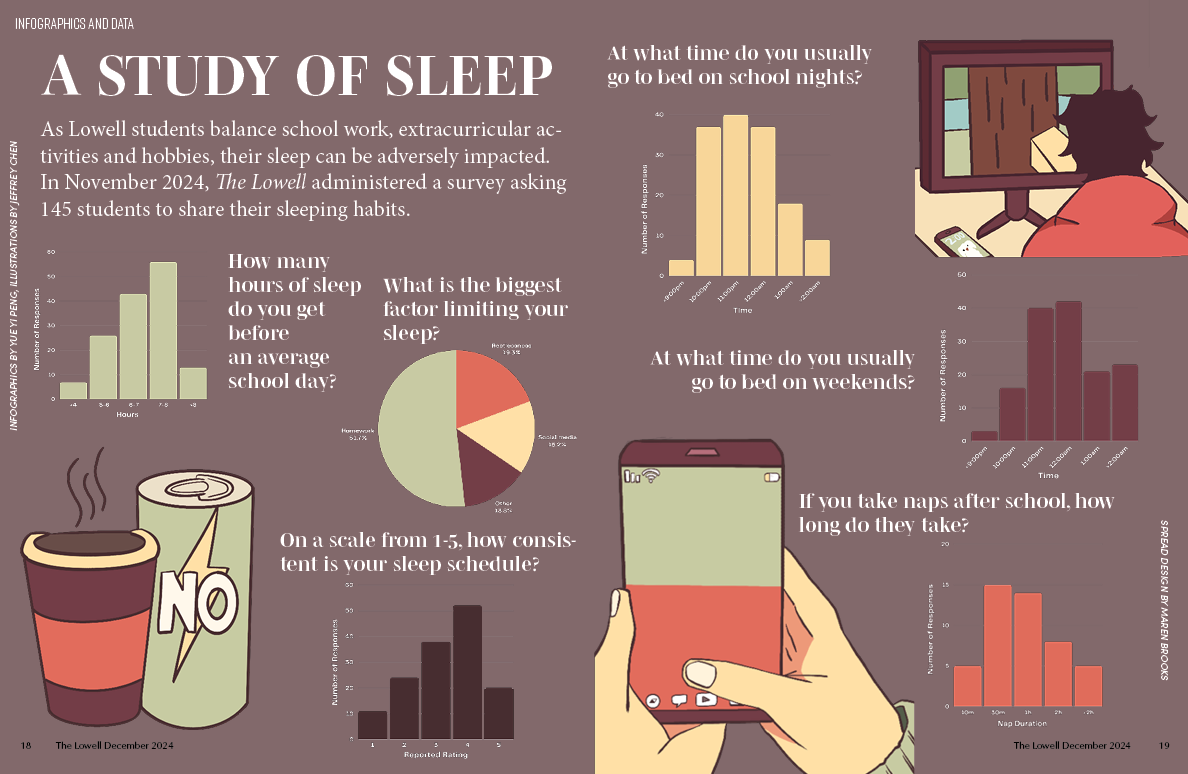As students at Lowell begin to earn paychecks from jobs, apply for financial aid, and make decisions about student loans and scholarships, many find themselves without the education needed to make informed financial choices. Plan Ahead, a required course for freshmen that fulfills SFUSD’s College and Career graduation requirement, constitutes Lowell’s effort to educate students on finances. However, Plan Ahead’s curriculum lacks substantive information on topics like banking, interest rates, and debt management, all of which are necessary information for any student who is planning to attend college, enter the workforce, and participate in the economy as an adult. According to the California Department of Education, having access to high-quality financial education leads to improved financial outcomes in adulthood, such as less debt and a higher quality of life. To provide students with a comprehensive financial education and ensure that they are better prepared to face the challenges of adulthood, Lowell should offer financial education classes.
Teaching personal finance through Plan Ahead is an unacceptable compromise. Plan Ahead discusses basic financial information, such as the difference between credit and debit cards, how to pay off loans, and how to open a savings account. However, rather than a dedicated Plan Ahead course, the curriculum is divided up among freshman teachers. Additionally, financial education is only incorporated within the section of the curriculum covered in freshman math classes, further limiting the size and scope of Plan Ahead’s financial education capacity. If students are not educated on the risks and benefits of different financial management practices, they will be unprepared for the economic decisions and financial issues that they will face in adulthood.
It’s true that Lowell has an abundance of course offerings. Adding another would be no simple matter, and may take a long time. It’s also true that Lowell’s economics classes cover personal finance to some extent. However, Lowell has the capacity to improve its financial education offerings.
The California Access to Financial Education Grant (CAFE), which provides funding for high schools to implement financial education courses, was put into effect on March 24, 2023. According to the SFUSD website, topics covered in these state-funded courses would include investing, taxes, college savings, budgeting, and saving. Despite the fact that SFUSD was the first school district in the state of California to receive this grant, the funding has not been fully put to use. Better utilizing this money would allow Lowell to provide quality economic instruction for its students.
Since Lowell fails to offer a dedicated financial aid class, the burden of this education primarily falls to parents. However, many parents do not have the financial knowledge necessary to provide their children with such information. Many students come from backgrounds where financial education was not taught or emphasized. Without a foundation of financial literacy at school nor at home, students are entering college with insufficient knowledge of how to manage their money.
Teaching students about saving for short- and long-term goals, as well as basic investment concepts, can set them on a path toward financial stability and encourage responsible habits. By introducing financial education classes at Lowell, we can address these demands at a critical stage in students’ development, ensuring that they are better prepared to manage their finances and make informed decisions as they enter adulthood.









